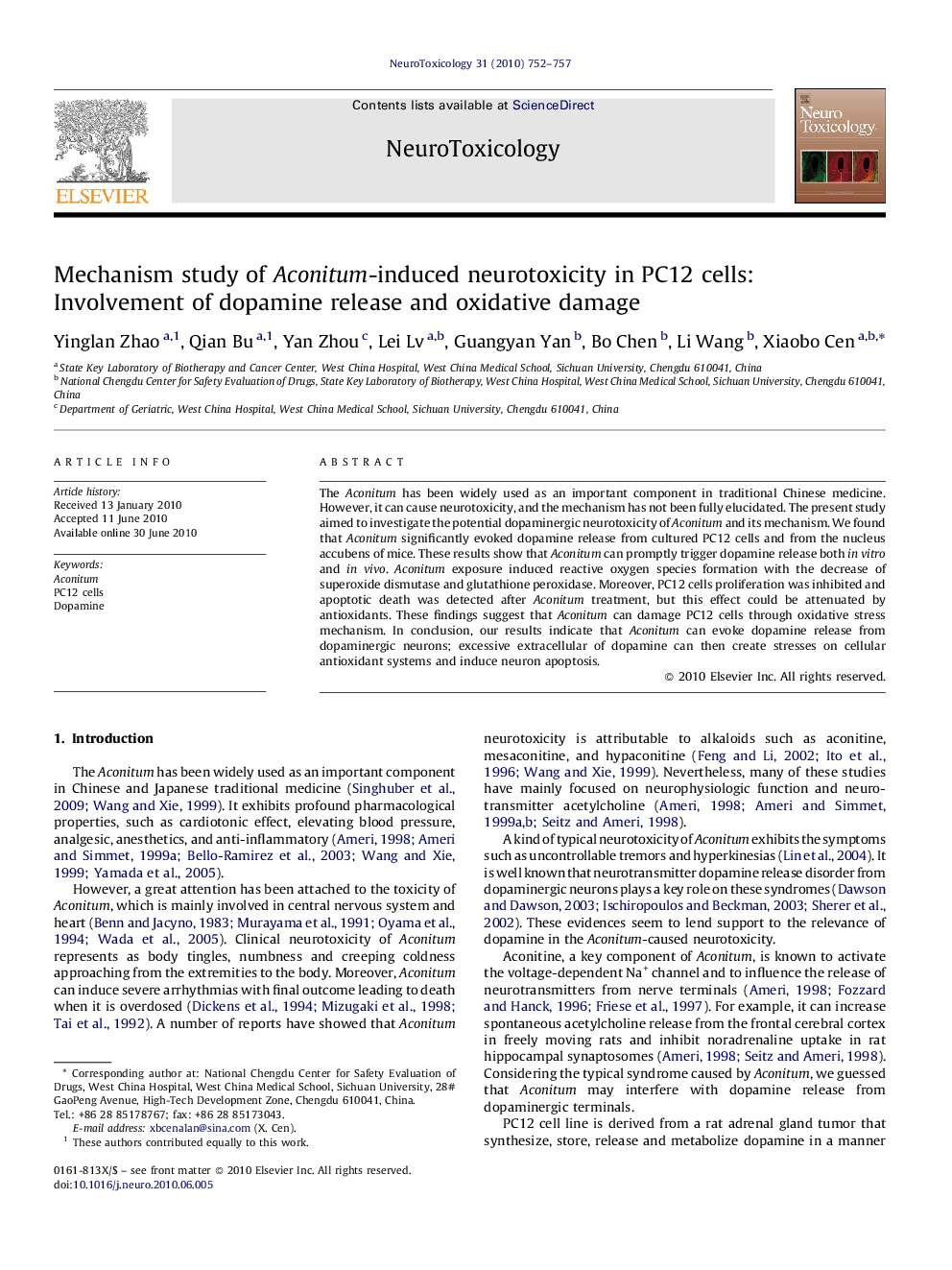| Article ID | Journal | Published Year | Pages | File Type |
|---|---|---|---|---|
| 2590571 | NeuroToxicology | 2010 | 6 Pages |
The Aconitum has been widely used as an important component in traditional Chinese medicine. However, it can cause neurotoxicity, and the mechanism has not been fully elucidated. The present study aimed to investigate the potential dopaminergic neurotoxicity of Aconitum and its mechanism. We found that Aconitum significantly evoked dopamine release from cultured PC12 cells and from the nucleus accubens of mice. These results show that Aconitum can promptly trigger dopamine release both in vitro and in vivo. Aconitum exposure induced reactive oxygen species formation with the decrease of superoxide dismutase and glutathione peroxidase. Moreover, PC12 cells proliferation was inhibited and apoptotic death was detected after Aconitum treatment, but this effect could be attenuated by antioxidants. These findings suggest that Aconitum can damage PC12 cells through oxidative stress mechanism. In conclusion, our results indicate that Aconitum can evoke dopamine release from dopaminergic neurons; excessive extracellular of dopamine can then create stresses on cellular antioxidant systems and induce neuron apoptosis.
